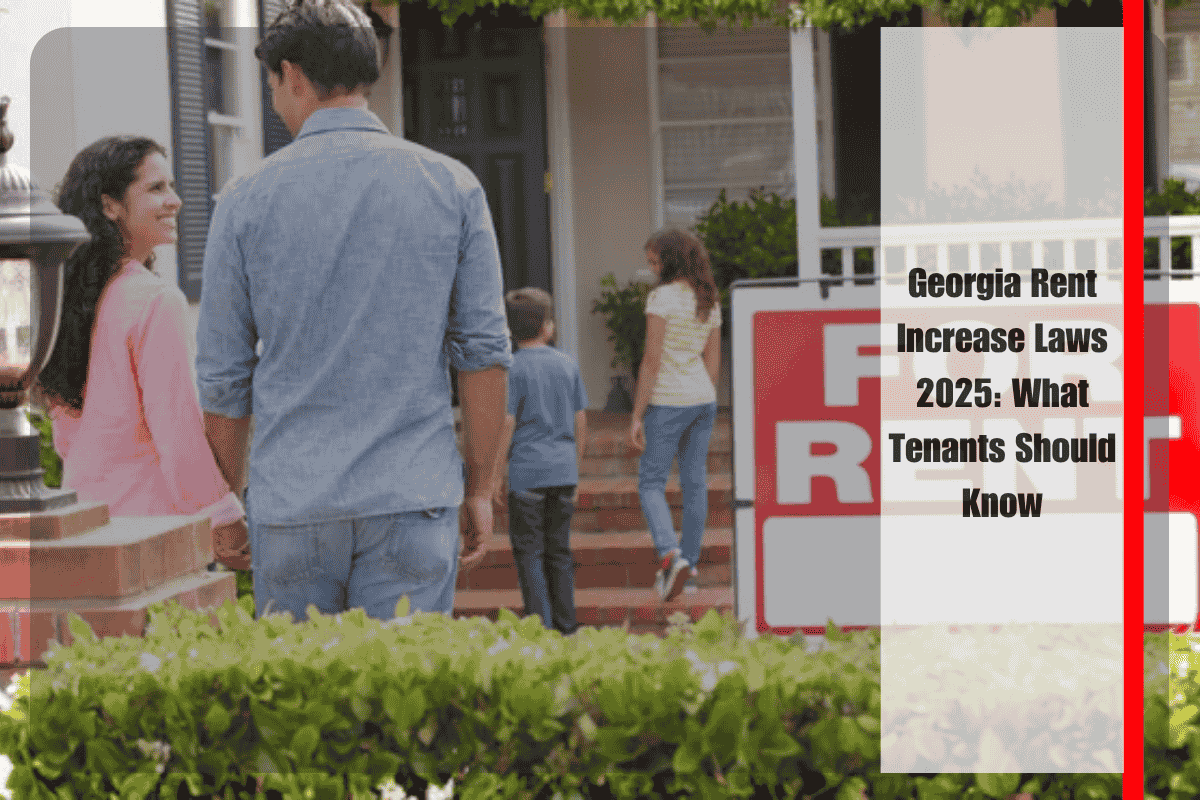In Georgia, like in many other states, rent increases are a reality that tenants must face. With the cost of living rising, landlords may look to adjust rent prices to keep up with market trends. However, tenants have rights when it comes to these increases, and it’s important to understand the rules and regulations around rent hikes. As we approach 2025, several key factors are shaping how rent increases work in Georgia. Here’s what tenants need to know about the state’s rent increase laws.
How Often Can Rent Be Increased in Georgia?
In Georgia, there is no specific law that limits how often a landlord can raise the rent. This means that, under most rental agreements, rent can be increased at the end of the lease term or after the notice period required by the lease agreement. However, the rental increase must comply with any terms set in the lease. For example, if the lease states that rent cannot be increased for the first year of the contract, the landlord must honor that agreement.
For month-to-month tenants, Georgia law requires landlords to give at least 30 days’ written notice before increasing the rent. This notice period allows tenants to decide whether they want to accept the new rent terms or move out. Tenants on fixed-term leases are usually subject to rent increases only when the lease is up for renewal, provided the landlord has given notice as outlined in the lease agreement.
Rent Control in Georgia
Georgia does not have statewide rent control laws, meaning there are no limits on how much a landlord can raise the rent, as long as the increase is legal and outlined in the lease. Rent control laws are typically found in specific cities or regions, but in Georgia, there are no such restrictions on rent increases at the state level.
That said, certain local municipalities may have specific rules or ordinances related to rent increases, especially in cities with high demand for rental housing. However, these local regulations are rare in Georgia. Most tenants are subject to market rates and the terms of their lease agreements.
Legal Requirements for Rent Increases
While there are no state-imposed caps on rent increases, landlords in Georgia must follow certain legal requirements when raising the rent. If a landlord wishes to increase the rent during the lease term, they must adhere to the terms specified in the lease agreement. If the lease does not allow for mid-term rent hikes, the landlord cannot raise the rent until the lease ends and the tenant renews the contract.
For month-to-month tenants, a 30-day written notice is required for any rent increase. It’s important to note that this notice must be given before the rent increase takes effect. If a landlord fails to provide proper notice, the rent increase may not be valid.
Can Rent Increases Be Discriminatory?
Rent increases must be applied fairly and cannot be discriminatory. Landlords cannot raise the rent for reasons based on race, religion, gender, sexual orientation, or other protected characteristics under federal or state law. If a tenant believes that their rent was increased unfairly based on discrimination, they may have legal grounds to challenge the increase.
Additionally, if a tenant is involved in a legal dispute with a landlord, such as reporting housing code violations, retaliatory rent increases are prohibited by Georgia law. A landlord cannot raise the rent as retaliation for a tenant asserting their rights or making complaints about the property’s condition.
What Happens if I Don’t Pay the Increased Rent?
If a tenant refuses to pay the increased rent after receiving proper notice, the landlord has the legal right to begin the eviction process. However, tenants cannot be evicted simply for refusing to accept a rent increase. If a tenant does not agree with the new rent price, they may decide to move out instead, especially if the increase is significant.
If the tenant remains in the rental property without signing a new lease or agreeing to the rent increase, the landlord can issue a formal eviction notice after the 30-day period or the lease renewal date has passed. If the tenant is unable to pay the new rent or does not leave voluntarily, the landlord can initiate the court process to evict the tenant.
Can Rent Be Raised During a Lease Term?
For tenants with a fixed-term lease, the rent cannot generally be increased during the term of the lease unless the lease specifically allows for it. However, when the lease term expires, the landlord is free to propose a new rental rate for the next lease period. In this case, the tenant has the option to accept the new rent or choose to move out.
If a tenant is dissatisfied with the proposed increase at the end of their lease, they have the option to negotiate or seek alternative housing options. A tenant can choose to renew the lease with the new rent terms or simply let the lease expire and vacate the premises.
Rent increases in Georgia are subject to the terms set by the landlord and tenant in the lease agreement. While there are no statewide rent control laws, there are still legal requirements for notifying tenants of rent increases, particularly for month-to-month leases. Tenants should always carefully review their lease agreements to understand the terms around rent increases and know their rights regarding notice periods and possible rent hikes. If a tenant feels that the increase is unfair or discriminatory, they may seek legal advice or challenge the increase.
Sources
[1] https://www.hemlane.com/resources/georgia-rent-control-laws/
[2] https://www.turbotenant.com/rental-lease-agreement/georgia/laws/rent-control/
[3] https://www.steadily.com/blog/rent-increase-laws-regulations-georgia
[4] https://www.landlordstudio.com/landlord-tenant-laws/georgia-rent-increase-laws
[5] https://www.doorloop.com/laws/georgia-rent-increase-notice












